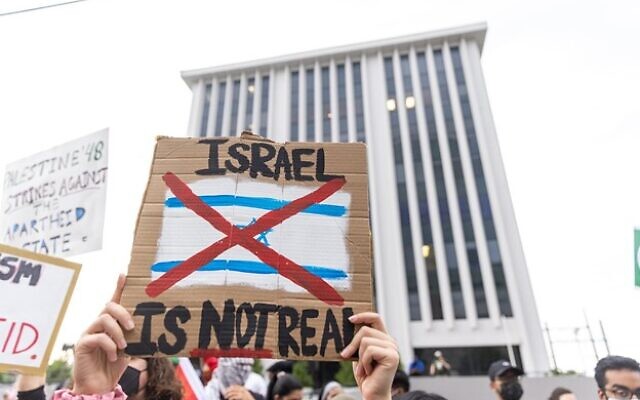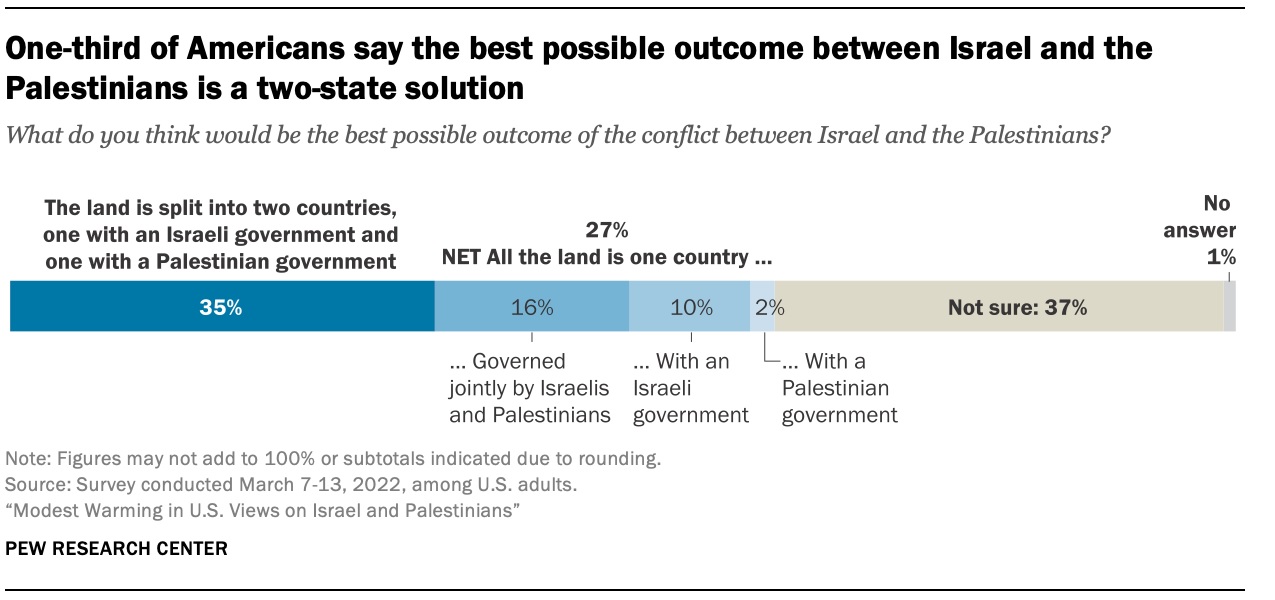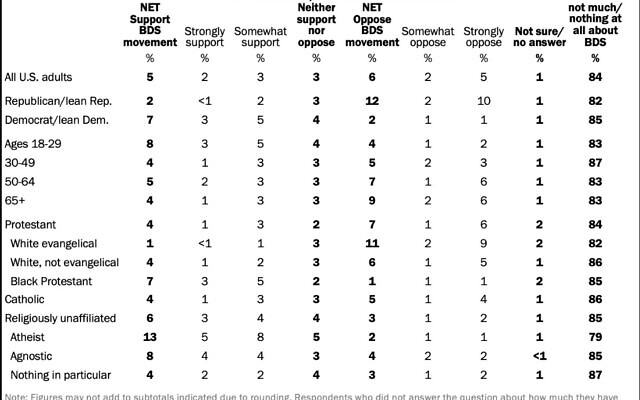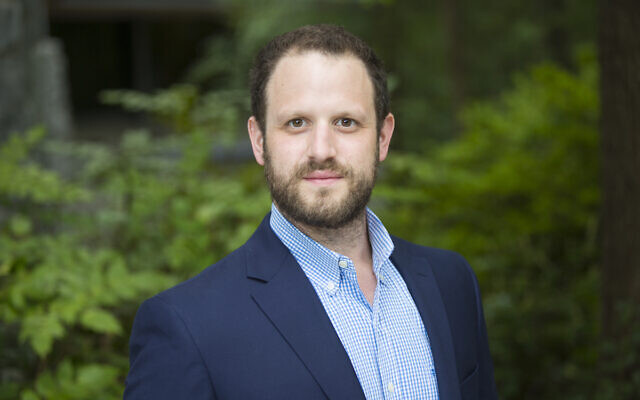Pew Study Finds Age Gap in View of Israel-Palestine
The divide is much more profound among the older generation than among Americans under age 30.

The latest results of the Pew Research American Trends Panel, a survey conducted in March, showed a widening generational gap in how American adults view the Israeli-Palestinian conflict, the two governments and a future solution to the conflict.
While Americans continue to espouse more positive feelings toward Israelis and their government than toward Palestinians and their leadership, the gaps are much more profound among the older generation than among Americans under age 30.
The latter view the Palestinians at least as warmly (60 percent “very” or “somewhat favorable”) as the Israelis (56 percent), while rating the Palestinian administration as favorably (35 percent) as the Israeli government (34 percent).

The growing difference in how younger and older Americans perceive the conflict does not come as a surprise to Eli Sperling, who just completed his second year of post-doctorate work at Duke University and is about to become the Israel Institute Teaching Fellow at the University of Georgia in Athens. In the fall, he will teach a course on Israeli politics, as well as one on diplomacy in the Israeli-Palestinian conflict.
Sperling points out that the older generation grew up during pre-1967 Israel, when the small and developing country was an underdog, isolated by the Arab boycott. In those days, Israel had the image of a more socialist country, exemplified by collectivist kibbutzim. It was an era dominated by Leon Uris’s book “Exodus” and the movie adaptation starring Paul Newman.
The older generation also remembers the optimism of the peace process of the 1990s, which led to the belief that a two-state solution was possible — with Israel and Palestine as democratic and peaceful neighbors.

Contrast this impression of Israel with that of the younger generation, which grew up with no such optimism. The Intifada of the early 2000s, with its massive death toll among both Israelis and Palestinians, followed by conflicts in Gaza every few years, formed the views of the younger generation.
“Israel changed so much since my dad was born in 1950,” observed Sperling. “There’s a generational shift in views of Israel’s precariousness.”
The apparent clarity of the older generation has been clouded by confusion among younger Americans, who view the Palestinians as underdogs outmatched by the mighty Israeli military. And the recent signing of the Abraham Accords between Israel and several of its Middle Eastern Arab neighbors has sown doubt about the final status of the conflict.
This is reflected in the Pew survey, which found “no clear consensus among Americans about the best possible outcome of the conflict between Israel and the Palestinians.” About one-third of the public says splitting the land into two countries — a version of the “two-state solution” long backed by U.S. diplomacy — would be best (35 percent). But roughly a quarter (27 percent) would prefer to see a single state emerge, in most cases with a government comprised jointly of Israelis and Palestinians. And more than a third of U.S. adults (37 percent) say they are not sure about the best outcome.

This is particularly true of the younger generation. “Older Americans are more inclined than younger ones to say that a two-state solution would be the best possible outcome of the conflict, while adults under 30 are more likely than their elders to say they aren’t sure what’s best.”
Sperling said he was glad that the survey asked a question about the Boycott, Divestment and Sanctions (BDS) movement against Israel. Perhaps surprisingly for the American Jewish community, relatively few Americans are familiar with this movement. More than 80 percent say they have heard “not much” or “nothing at all” about BDS. Just five percent of U.S. adults report having heard at least “some” information about BDS, including two percent who strongly support it.
Adults under 30 are slightly more likely than older Americans to say they support the movement.
That contrasts sharply with a 2020 Pew study of Jewish Americans, in which a slim majority said that they had heard of BDS. Of those, most said that they opposed it.
BDS has been a focus of the Israeli government’s diplomatic outreach, which has resulted in several U.S. states, including Georgia, passing anti-BDS laws.
And, although the wider American electorate may be unfamiliar with BDS, Sperling said “it’s a big deal on college campuses, and not just in the United States. It’s a phenomenon we see globally.”
Other results of the Pew survey indicate that Republicans are more likely than Democrats to show more support for the Israelis than for the Palestinians and that 70 percent of white evangelicals believe that G-d gave the land of the modern State of Israel to the Jewish people. That is more than twice the number of American Jews who responded likewise to a similar question in Pew’s 2020 survey, and about the same proportion as Americans overall.



comments